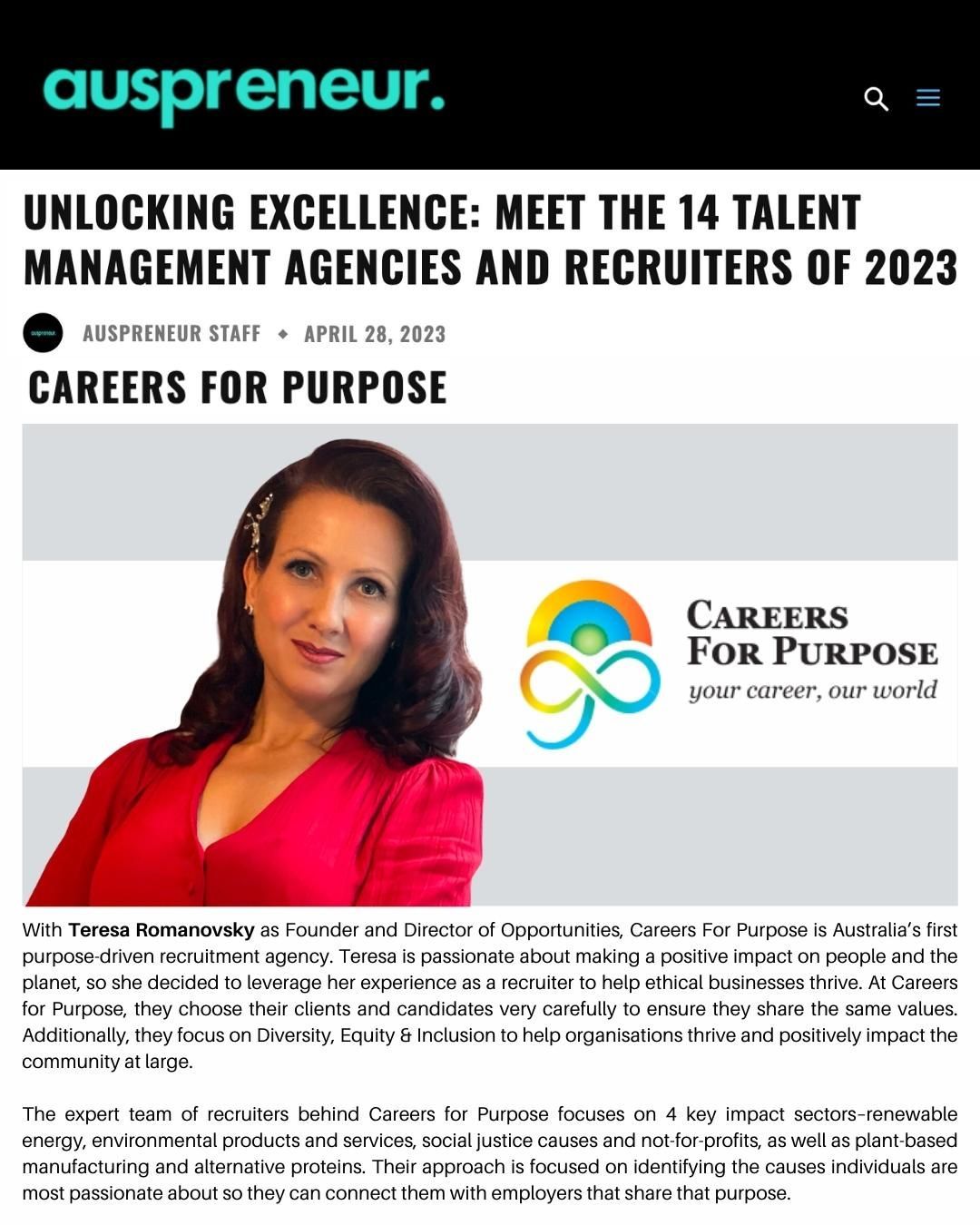We've Been Featured in Auspreneur!
Teresa Romanovsky • May 9, 2023
Check out our feature in Auspreneur's latest list of recruitment agencies to watch! Interesting to see the uniqueness of each boutique recruiter in this highly competitive industry. Standing out, or in our case, Standing Up, for what we are passionate about 🌏🌞

Click here for the full feature

Recruitment may not be the first industry you think of when it comes to carbon emissions. Yet the environmental footprint of traditional hiring practices is larger than many realise: flights for interviews, paper-heavy processes, in-person assessments that involve travel and energy use. All of these add up. At the same time, “sustainable recruitment systems” are proving to be far more than a buzzword. They are helping organisations reduce waste, attract values-driven talent, and future-proof their workforce strategies. In other words, green hiring is both a moral and a commercial imperative .

At this year’s ReGen Expo , the programme was thoughtfully divided into two key tracks: The Resource Stage , focused on innovations in recycling and resource recovery. The Circularity Stage , showcasing upstream redesign, system change, and regenerative business models. Both matter, but they’re not the same. Recycling plays a critical role in reducing what ends up in landfill. But circularity reaches further, asking how we might design waste out altogether . In short: If recycling is like treating the symptoms, circular processes are like building a lifestyle that prevents the illness in the first place.

A Sobering Reality Check Australia’s emissions reduction report card is in, and it makes for uneasy reading. Strip away land use changes, and national emissions have dropped just 3% since 2005. While federal targets remain focused on achieving net-zero by 2050, progress is painfully slow across energy, transport, and industrial sectors. Politicians may debate policy, and analysts may point to infrastructure bottlenecks, but there’s a more human variable we urgently need to talk about: talent. Could the decarbonisation lag be less about ambition and more about our inability to scale the workforce to match?
